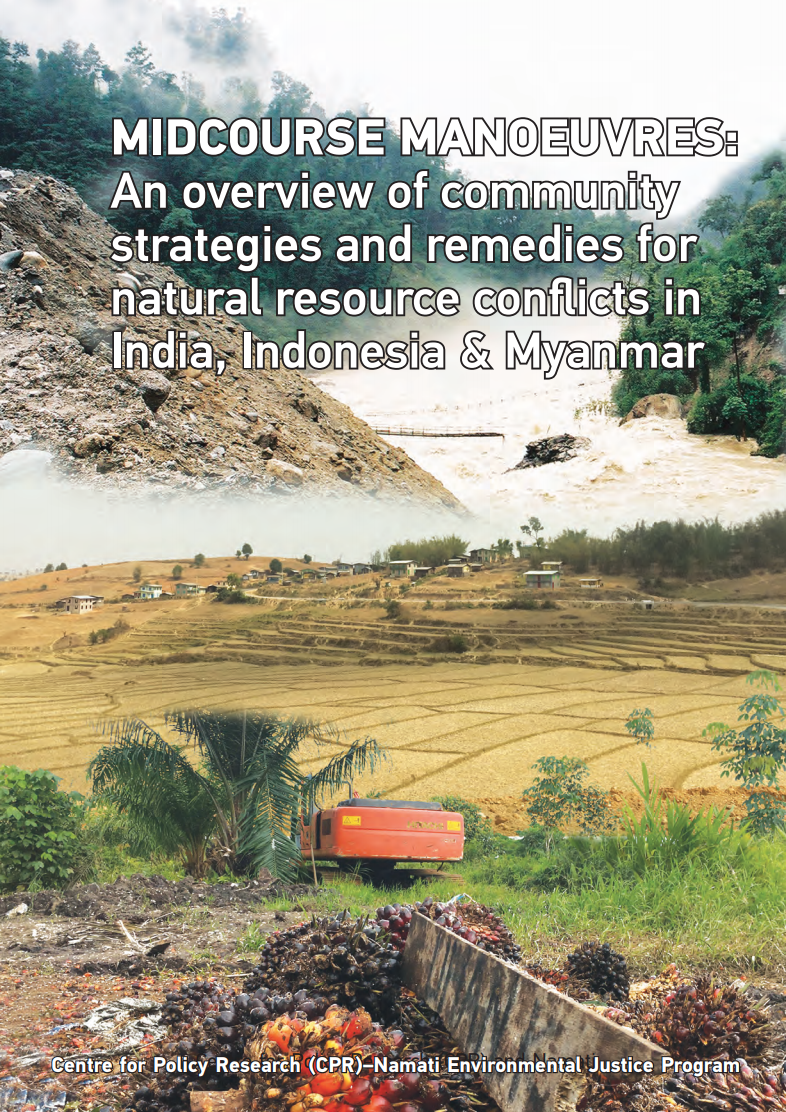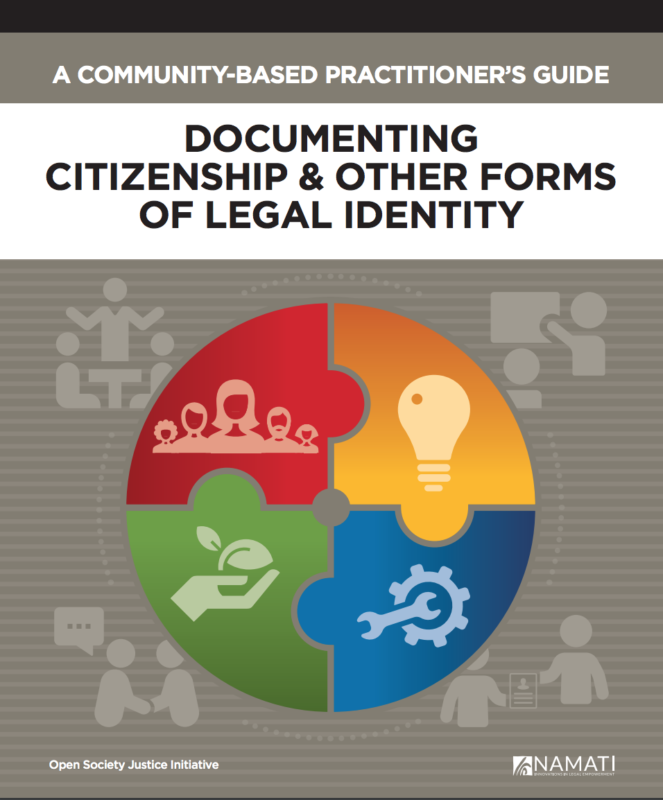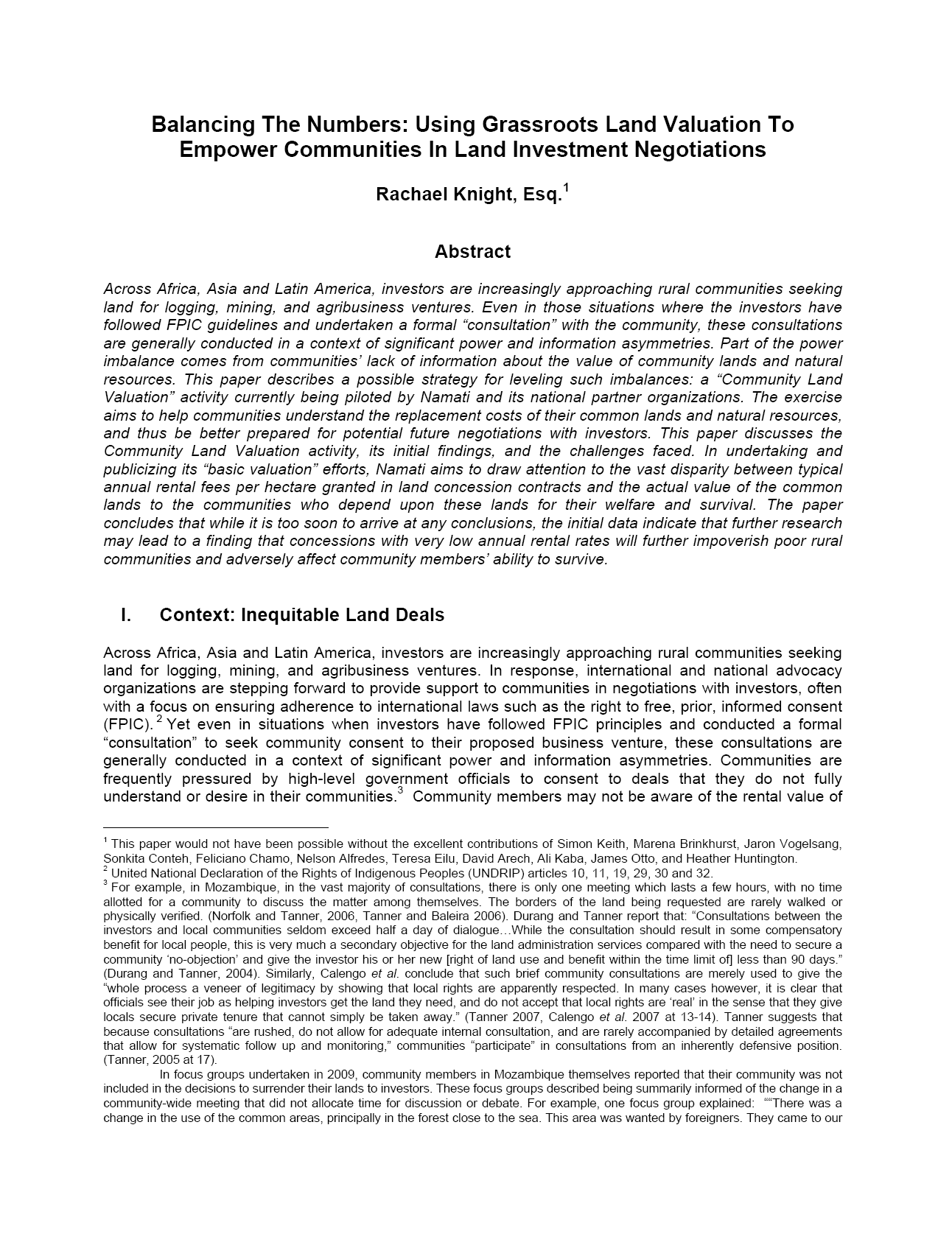Namati: Innovations in Legal Empowerment
Namati is an international organization that tests the potential of legal empowerment through innovative interventions and research. Through our work, we seek a better understanding of the impacts of legal empowerment and the most effective mechanisms for achieving them.
As a means of cultivating a more robust movement for legal empowerment, Namati also hosts a growing Global Legal Empowerment Network of practitioners and supporters. Network members are active in every continent in the world, whereas Namati’s programs and research focus on exploring the potential of legal empowerment in specific countries, including Sierra Leone, India, Liberia, Mozambique, and Uganda.
Mission: Building a movement of grassroots legal advocates
Resources
Displaying 21 - 25 of 69Midcourse Manoeuvres: Overview of Community Strategies and Remedies for Natural Resource Conflicts in India, Indonesia and Myanmar
Land transformation has been at the centre of the economic growth of post-colonial Asia. In the 1990s, many Asian countries embraced economic liberalization and speculative business interests in land began to replace the state’s control of land for developmental purposes. The growing demand for land by corporations and private investors has fuelled several regional land rush waves in Asia, bringing them directly in conflict with communities that require these lands for their occupations and survival.
A Community-Based Practitioner’s Guide: Documenting Citizenship and Other Forms of Legal Identity
This guide provides step-by-step instructions on establishing and operating a paralegal or other community-based program to help people obtain legal identity documents. It is primarily for people designing and managing community-based paralegal projects to help clients access documentary proof of citizenship and other forms of proof of legal identity, such as birth certificates.
Preparing in Advance for Potential Investors - Guide 1 For community members and advocates interacting with potential investors
This guide for legal advisors, community leaders and members explains how communities can prepare for interactions with potential investors, including making decisions about whether or not to negotiate. It can be used to help a community: (a) prepare before an investor arrives and (b) decide whether or not to enter into discussions or negotiations with an investor that has arrived. It should be used before any negotiations start.
Preparing in Advance for Potential Investors - Guide 1 For community members and advocates interacting with potential investors
This guide for legal advisors, community leaders and members explains how communities can prepare for interactions with potential investors, including making decisions about whether or not to negotiate. It can be used to help a community: (a) prepare before an investor arrives and (b) decide whether or not to enter into discussions or negotiations with an investor that has arrived. It should be used before any negotiations start.
Balancing The Numbers: Using Grassroots Land Valuation To Empower Communities In Land Investment Negotiations
Across Africa, Asia and Latin America, investors are increasingly approaching rural communities seeking land for logging, mining, and agribusiness ventures. Even in those situations where the investors have followed FPIC guidelines and undertaken a formal “consultation” with the community, these consultations are generally conducted in a context of significant power and information asymmetries. Part of the power imbalance comes from communities’ lack of information about the value of community lands and natural resources.







